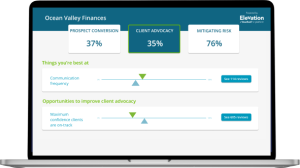Networks have always been faced with an additional challenge to directly authorised firms. How to ensure their Appointed Representatives (ARs) compliantly provide suitable advice, whilst allowing them freedom to run their own businesses as they see fit.
The introduction of Consumer Duty has just magnified this problem by requiring enhanced oversight and more detailed reporting.
In this article, we’ll delve into the unique hurdles faced by networks in the face of Consumer Duty. We’ll also provide some practical steps to give networks the best chance of success whilst supporting their ARs.
Room to sway
A fitting metaphor for a network and its ARs might be the relationship between a tree and its branches. The tree, the network, ensures that every branch has access to the necessary resources to flourish and grow. In return the branches are free to grow in their own way, using their leaves to create nutrients for the tree.
In the same way, the network bears the responsibility of ensuring that all its ARs conduct their business appropriately. Yet, it needs to be mindful not to stifle the operational independence that characterises the very nature of an AR. The network, like the tree, should give its branches the space to sway and grow in their unique ways. All the while providing support to keep them strong and in line with the core values and principles of the network.
Nurturing strong branches
For most networks, navigating the Consumer Duty tightrope will require some changes. Here are our top 4 tips to help networks get themselves, and their ARs, ready for Consumer Duty:
1. Set clear expectations
Consumer Duty will be a big change for ARs. Whilst they will have heard much about it over the last year, actually being asked to do things differently will no doubt come as a shock.
The best policy is to set clear expectations about what is required from ARs, when and how. Be sure to explain the reason they are being asked to do something to increase the chance of adherence.
Thorough training will help ARs understand what they are doing and why. This training needs to be comprehensive and sustained. Any change of this magnitude will require regular reinforcement so make Consumer Duty training a permanent feature on the annual training calendar. Case study training is particularly effective as stories involving people are easy to remember and engage with.
2. Make it easy to comply
Change is easier to deal with when you have a clear roadmap and the tools you need to comply.
Provide ARs with clear, actionable guidance. Break down the requirements into digestible steps, and support these with user-friendly, practical tools such as standardised templates and comprehensive checklists.
These tools not only make it easier for ARs to work in the desired way, but bring constancy and precision into operations for the network. The goal is to help ARs comply, whilst not taking away client facing time.
3. Data
Before asking for data, networks should carefully evaluate the data they truly need from their ARs. Collecting unnecessary data not only burdens ARs but also clogs the network’s analytical capabilities. Only ask for data if it provides valuable insights to meet Consumer Duty requirements or improve service delivery.
Once you’ve identified the essential data, communicate this clearly to your ARs. Outline exactly what data you need, how it should be compiled and formatted, and when it should be submitted. This will eliminate confusion, promote consistency, and facilitate smoother data processing at the network level.
Automate data collection where possible using technology. It’s much easier to add additional data points to the network’s back office system than create spreadsheets or word documents that need to be completed manually.
4. Carrots and sticks
As a species, we naturally gravitate towards pleasure and away from paid. The right incentive and compliance framework will help adoption of Consumer Duty by ARs.
Publicly praise those ARs who are doing everything asked of them. Use these firms as case studies to show others what good looks like. ARs can be competitive. A Consumer Duty league table, focussed on positive measures, could encourage healthy competition.
Conversely, compliance monitoring should contain clear penalties for non-adherence. These could include retraining, increased supervision, suspension of licences or even termination in extreme cases.
How can ARs help their network?
For ARs, the best approach is to take time to fully understand Consumer Duty, and what the network expects, then proactively provide it. The best way to pacify a data hungry master is often to proactively provide more data than is required.
Proactively volunteering information about how you have embraced the principles of Consumer Duty and collecting the data you need to validate good client outcomes are being achieved, gives comfort to the network.
It’s often those who hide in the dark that the spotlight is shone on first.
A Complex Symbiosys
A network and its ARs have always lived in a symbiotic state. Both needing each other to survive and prosper. Consumer Duty requires the network to have additional oversight of its ARs, to ensure they are not only providing suitable advice but demonstrably acting to create good outcomes for clients.
But, here too, a balancing act is needed. Too much control from the network could result in a loss of autonomy and frustrated ARs. Too much freedom, and the required control and oversight becomes impossible. The answer lies in creating a supportive environment that educates and encourages ARs to live the Consumer Duty principals. It is only in this balance that the robustness of the network ecosystem is preserved.
Proactively volunteering information about how you have embraced the principles of Consumer Duty and collecting the data you need to validate good client outcomes are being achieved, gives comfort to the network.
It’s often those who hide in the dark that the spotlight is shone on first.




